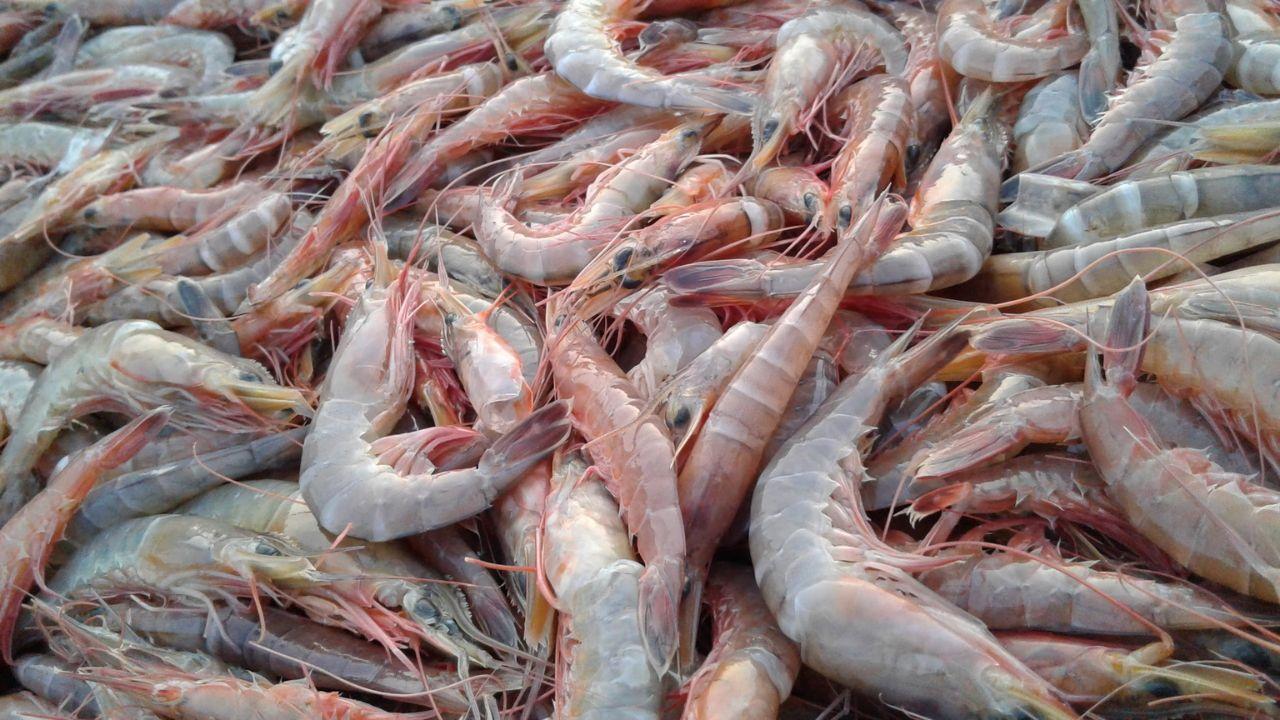You have not yet added any article to your bookmarks!

Join 10k+ people to get notified about new posts, news and tips.
Do not worry we don't spam!

Post by : Maya Rahman
Indonesia is investigating a possible radioactive contamination in shrimp after the United States reported that frozen shrimp exported from the country may have been exposed to Cesium-137. The U.S. Food and Drug Administration (FDA) and U.S. Customs and Border Protection (CBP) detected Cesium-137 in shipments at several major U.S. ports.
The affected ports include Los Angeles, Houston, Savannah, and Miami. As a precaution, the FDA has temporarily suspended imports of processed shrimp from the Indonesian company PT Bahari Makmur Sejati until the source of contamination is fully identified.
Government Officials Visit Shrimp Facility
Environment Minister Hanif Faisol Nurofiq visited a shrimp processing facility in Cikande, Serang District, Banten, to investigate the reports. The facility processes shrimp that are mostly sourced from Lampung, a region in southern Sumatra.
During his visit, Minister Nurofiq noted that identifying Cesium-137 in a shrimp processing plant is highly unusual. He said that the government is taking the matter seriously and will conduct a detailed investigation to determine the source of contamination.
Joint Investigation Launched
The investigation is being led jointly by the Maritime Affairs and Fisheries Ministry, under Minister Sakti Wahyu Trenggono, and other relevant agencies. Experts will assess the processing conditions at the Cikande facility to understand how radioactive material may have entered the supply chain.
Minister Nurofiq emphasized the importance of identifying the contamination source quickly. “We must find the origin to prevent public concern and avoid significant losses in the export sector,” he said.
U.S. Response to Contamination
The FDA’s detection of Cesium-137 prompted an immediate suspension of shrimp imports from PT Bahari Makmur Sejati. The U.S. agency’s action is intended to protect consumers from potential health risks associated with radioactive contamination.
CBP also confirmed the presence of Cesium-137 in containers arriving at multiple U.S. ports. The authorities continue to monitor shipments from Indonesia to ensure food safety standards are met.
Coordination Among Indonesian Authorities
Trade Minister Budi Santoso confirmed that Indonesia’s government is coordinating with the Maritime Affairs and Fisheries Ministry and the Nuclear Energy Regulatory Agency (Bapeten). Together, they are evaluating the safety of frozen shrimp exports to the United States.
The government aims to ensure that all exports meet international safety standards. This coordination is important to restore confidence in Indonesian seafood products among global buyers.
Experts Assess Risks
A team of experts will be sent to the shrimp processing facility to examine the production line and storage facilities. They will also test shrimp samples to determine the extent of contamination.
Minister Nurofiq stated that the investigation will focus on preventing future contamination, protecting public health, and ensuring that exports remain safe. The government is committed to acting transparently and keeping the public informed.
Economic Impact of Suspension
The suspension of shrimp exports could affect Indonesia’s seafood industry, which is a significant source of foreign income. Shrimp is a major export product, especially to countries like the United States. Any prolonged disruption could impact the income of shrimp farmers, processors, and exporters.
The government is working to resolve the issue quickly to minimize economic losses while maintaining food safety standards. Officials stressed that protecting public health must be the top priority.
Public Safety Concerns
Cesium-137 is a radioactive substance that can be harmful if ingested. The government wants to reassure the public that contaminated shrimp are not being sold locally. All affected shipments are being carefully monitored and handled according to safety protocols.
Minister Nurofiq emphasized that public health is the main concern. “We need to make sure that all food products from Indonesia are safe for consumers,” he said.
Measures to Prevent Future Contamination
Authorities plan to introduce stricter monitoring and quality control measures at shrimp farms and processing facilities. This includes regular testing for radioactive substances and other contaminants.
Minister Trenggono highlighted the need for clear guidelines and strict enforcement to prevent similar incidents in the future. The government also intends to provide training to shrimp farmers and processors on maintaining safety standards.
International Trade and Food Safety
Indonesia’s seafood exports are an important part of international trade. Maintaining food safety standards is essential to keep trust among foreign buyers. The incident with Cesium-137 highlights the importance of close monitoring of all exported seafood products.
The government assured that Indonesia remains committed to exporting safe and high-quality seafood. Efforts are underway to ensure compliance with international safety standards and avoid further trade disruptions.
Communication with the United States
Indonesian authorities are in direct contact with U.S. agencies to resolve the situation. By working closely with the FDA and CBP, Indonesia hopes to lift the import suspension as soon as safety is verified.
Minister Budi Santoso stated that cooperation with international partners is key to protecting both consumers and exporters. Ensuring transparency and rapid response will help maintain confidence in Indonesia’s seafood exports.
Transparency and Public Updates
The government has promised to provide regular updates on the investigation. Minister Nurofiq emphasized that accurate information is crucial to avoid misinformation and public panic.
Officials are working to make sure that both local and international markets are informed about safety measures and testing results. Clear communication is seen as essential for maintaining trust.
Indonesia is taking swift action to investigate radioactive contamination in frozen shrimp exported to the United States. Experts are examining the shrimp processing facility in Cikande, and coordination among government ministries aims to ensure food safety.
The FDA’s suspension highlights the seriousness of the issue, and the Indonesian government is committed to resolving the matter quickly. Measures will be implemented to prevent future contamination, protect public health, and maintain confidence in Indonesia’s seafood exports.










Study Warns Using AI for Medical Advice Is ‘Dangerous’ as Users Get Inaccurate Health Guidance
A major new study reveals that artificial intelligence (AI) chatbots and tools may give misleading o

Top Sci-Fi Movies Streaming on Netflix This February: Must-Watch Picks for Genre Fans
A curated news-style guide to the best science fiction films currently available on Netflix in Febru

BCCI Central Contracts Shake-Up: Kohli, Rohit Moved to Grade B as Board Reshapes 2025–26 List
Virat Kohli and Rohit Sharma have been placed in Grade B in the BCCI’s 2025–26 central contract list

Dalal Street Spotlight: Top 10 Stocks Investors Are Watching as Markets Open on a High
Indian stock markets begin the week with strong momentum, and several blue-chip and mid-cap stocks a

Market Movers Today: Key Stocks Set To Watch In Indian Markets
Indian equity markets are poised for active trading as several major companies, including Bharti Air

Milan Welcomes the World: Inside the Grand Opening Ceremony of the 2026 Winter Olympics
The 2026 Winter Olympics opening ceremony in Milan marked a defining moment for global sport, blendi